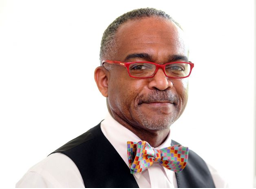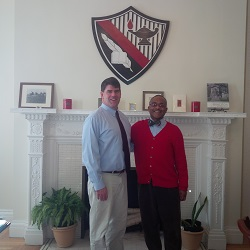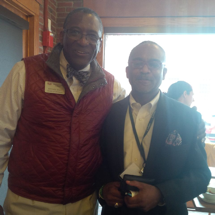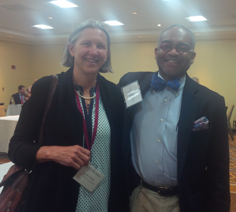
August 27, 2015 9:30 am College Admissions: Why A Postgraduate (PG) Year

By Admissions Expert, Dr. Lowe
What exactly are postgraduate year programs and how are they helpful in the college admissions context?
A postgraduate (PG) year is an additional year beyond high school graduation which is spent at an independent (private) high school. It’s really a fifth year of high school! Students enroll in PG programs only after completion of a four year high school program and after receiving a high school diploma. Students with a variety of different high school experiences apply to PG programs. They benefit from programs for six main reasons:
(1) Athletics: Many private schools have athletic resources, programs, support structures and relationships outside the school that will give the PG student an edge in reaching or furthering their athletic careers. Schools prepare students for the competitiveness of college athletics and assist them with NCAA clearinghouse regulations and NCAA eligibility requirements. Many students apply to perfect their athletic skills while improving academics so that they can be recruited for top college teams. In many cases, as I have witnessed, many Division I college coaches come to observe promising players at PG programs.
(2) Improve Academics: Some students enroll seeking new academic challenges not offered by their current high school. Their high school may not have a particular AP class, or upper level courses that PG programs have. To bolster their competitiveness or have more of an advantage in college admissions, students enroll in some PGs that have college-level courses.
(3) Improve Overall High School Profile: For many reasons students may have had unsatisfactory high school years. Whatever the case, perhaps a year or two does not accurately reflect their true efforts and abilities. Perhaps their grades and participation in activities never really recovered during high school as result of an unexpected and challenging life incident. PG programs provide students with the opportunity to improve their high school profile in an effort to improve their chances of admission to competitive colleges.

Steve Bristol, Director of Admissions and Financial Aid, The Hun School of Princeton, with Dr. Lowe.
(4) Maturity: Many students apply to PG programs because they are seeking a transitional year to live on their own away from home before heading off to college. Some are chronologically young for their grade and need an additional year to mature, build confidence and develop socially.
(5) Happiness: For many reasons, students may not have enjoyed their high school years. Studies have shown that there is a direct correlation between student happiness, motivation and growth mindsets about learning such as: sense of belonging and belief in the likelihood of success.
(6) Adapting to the U.S.: Many top international high school students with stellar grades, outstanding SAT scores and varied extracurricular activities desire to broaden their cultural experience and continue their education in the U.S. Many of these students speak 3-5 languages including English, fluently! They desire the excellent academic environment, variety of diverse educational opportunities, cutting-edge classroom technology, global campus life and fabulous sports facilities that PG programs have to offer. PG programs, of course, are supportive learning environments where international college-bound students can hone their college admission efforts and increase their chances of admission to competitive colleges!
There are over 150 schools worldwide that offer postgraduate programs. Some of the best programs in the world are located here in Connecticut: Choate Rosemary Hall, Cheshire Academy, Canterbury School, The Gunnery, Loomis Chaffee, Kent, and Hotchkiss School.
Over the last five years, I have observed that the competition for entry into PG programs is growing more fevered than ever as the competition to gain admissions to the Ivies and highly colleges have increased. As the value of PG programs become known, some programs are getting to be as selective as top colleges. Many schools have 300 applicants for as little as 20 slots. And schools are recruiting globally as far away as Beijing, Australia, Argentina, South Africa and yes, even Greenland to have a diverse student body.
One of the most prestigious PG programs is at Choate Rosemary Hall. About three years ago, I personally met its Director of Admissions, Raymond Diffley III, and had a wonderful opportunity to talk with him about Choate and its PG program. His thoughts regarding Choate’s PG program were succinctly communicated in an interview published in The News, the weekly Choate newspaper. “The first thing we look for in a postgraduate applicant is diversity and depth. We look for symbiotic relationships. We are trying to find a PG that will give to our community as much as he or she will take from our community. This brings an infusion of new people in every year which results in a wonderfully social environment.”
“Because postgraduate students only spend one academic year at Choate, the admissions offices look at the applicants a lot more meticulously than normal ones. The need for that symbiotic match is higher [for postgraduates than for any other applicant],” said Mr. Diffley. “We need to meet their goals and have them add dimensions to our community.”
With a price tag at top PG programs on average of $35,000 (day) and $50,000 (boarding) it seems expensive. However, when you consider your child’s educational future as an investment, and the competitive nature of college admissions, a PG program’s tuition is a worthy investment.
Dr. Paul Reginald Lowe is the managing director and lead admissions expert at Greenwich Admissions Advisors. Tel. (203) 542-7288, and founder of Private School Admissions Advisors.
Dr. Lowe is an active member of several professional organizations including: the Higher Education Consultants Association (HECA), the National Association for College Admissions Counseling (NACAC), the New York Association for College Admission Counseling (NYACAC), the New Jersey Association for College Admission Counseling (NJACAC), the Overseas Association for College Admission Counseling (OACAC), and NAFSA: Association of International Educators, American Foreign Service Association (AFSA), and the Admissions Leadership Consortium (ALC).



